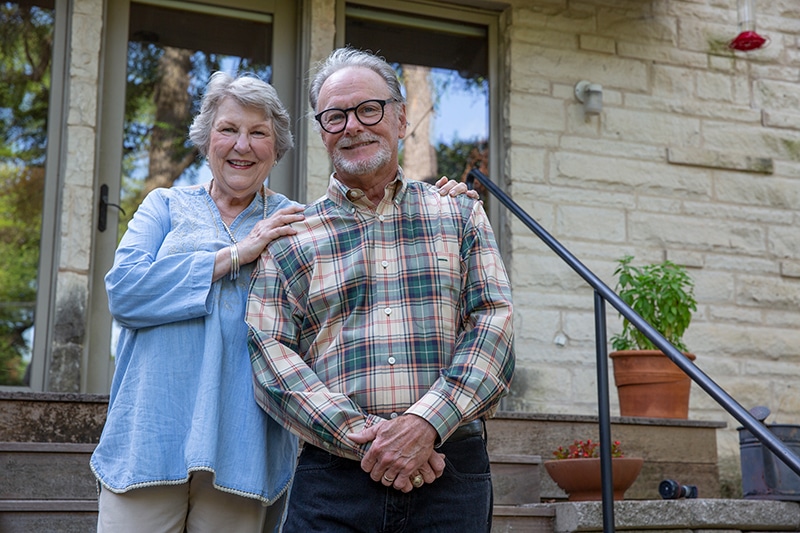Only days after celebrating her golden anniversary with the love of her life, Jean Russo never imagined she would be suffering from a broken heart — but not the way you might think.
Jean was at the end of a 12-hour shift as a labor and delivery nurse in June 2018 when she started to feel unwell. Sure, she was tired — but after 36 years as a nurse at Methodist Charlton Medical Center, she told herself it had just been a long day.
“Keep going,” she thought.
She kept working, but the nursing veteran knew she couldn’t make it. She was sweating heavily and having trouble breathing.
“I told my coworkers I needed to go down to the emergency department,” Jean says.
Once there, she called her husband.
“It didn’t seem serious originally, but it quickly escalated,” she says.
A heart in distress
At first, Christo Philip, MD, emergency medicine physician on the medical staff at Methodist Charlton Medical Center, suspected that Jean might have a blood clot in her lung, but as her oxygen levels started to drop dramatically, he knew it was something else. He called in Roberto Wayhs, MD, cardiologist on the hospital’s medical staff.
In the cardiac catheterization lab, Dr. Wayhs noticed images of Jean’s heart were consistent with those resembling broken heart syndrome, formally called takotsubo cardiomyopathy.
“The name comes from the shape of a Japanese takotsubo, or octopus trap, because the left ventricle takes on a shape resembling one as it contracts,” Dr. Philip says. “The decrease in the heart’s ability to pump blood can lead to heart failure.”
To compensate for Jean’s weakened heartbeat until her ventricle could recover, Dr. Wayhs had to place an Abiomed Impella 2.5® heart pump. Jean credits his accurate diagnosis and treatment for saving her life.
Though she had walked the halls of Methodist Charlton for decades, the now-retired nurse had never personally met the cardiologist before she became a patient.
“What a great doctor he is,” she says. “I was just happy he was there.”
She never saw the stress
After a couple weeks recovering in the hospital and relying on a ventilator to help her breathe, Jean was able to go home and begin cardiac rehabilitation. She was surprised to learn that the most common cause of broken heart syndrome is stress.
Jean hadn’t felt stressed at the time of her health scare, but looking back on the weeks leading up to it, she had to admit that the diagnosis made sense. After all, she had traveled, lost a family member, and worked long shifts. Her age and sex also put Jean at risk.
“Of the people diagnosed with takotsubo cardiomyopathy, 90% are women, and the average age is 66,” Dr. Wayhs says. “In general, it used to be considered a rare condition, but now it is better diagnosed and accounts for 1 to 2% of patients admitted with a suspected heart attack.
“Luckily, we were able to recognize what was going on rather quickly with Jean and treat her so that her condition didn’t further escalate.”
Not all cases of takotsubo cardiomyopathy are as serious as Jean’s and not all are connected to stress, but that doesn’t stop Jean from encouraging others to take their stress seriously.
“Especially as a nurse, your days can be so different,” she says. “You need to pay attention to your body. It could save your life.”

